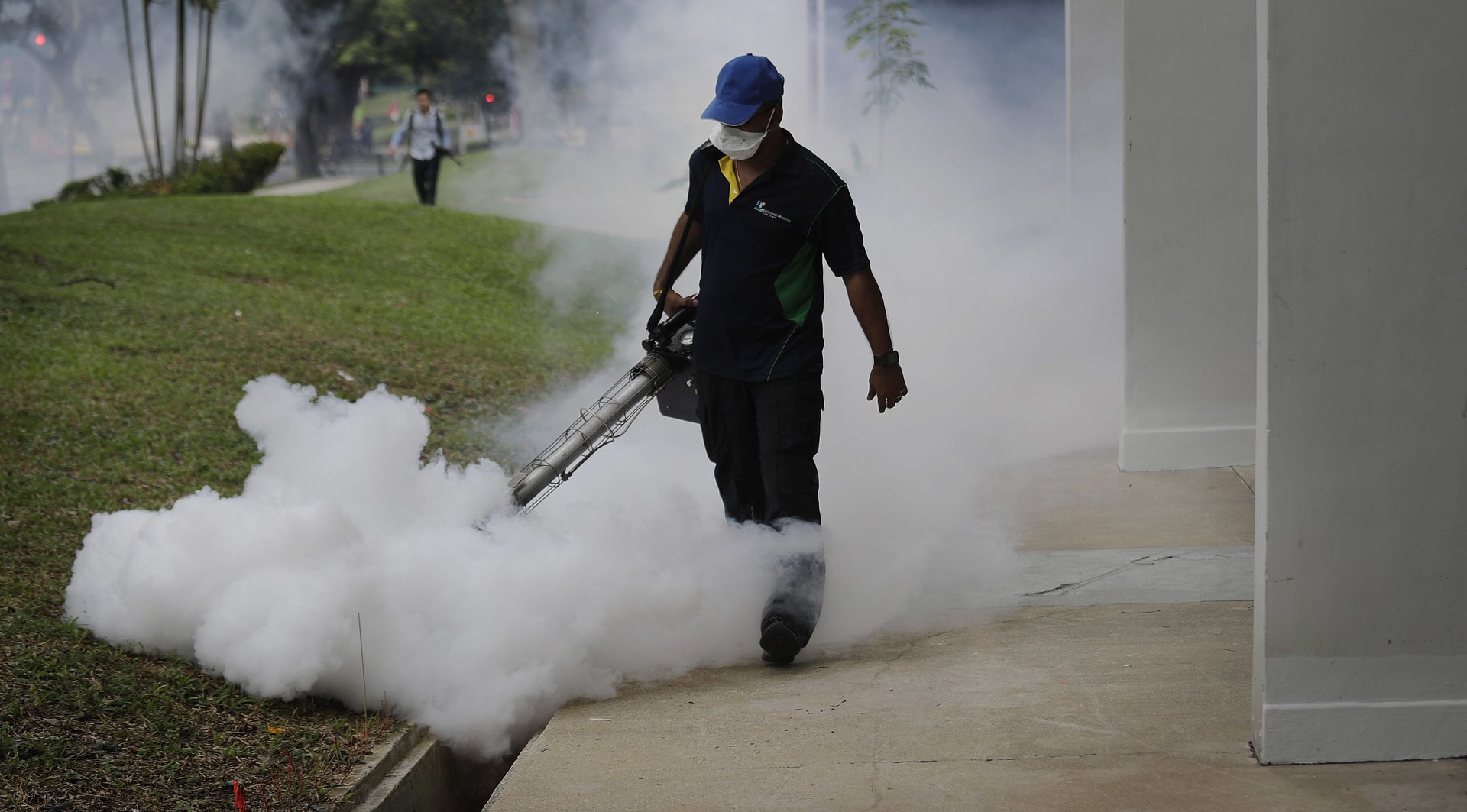Zika may have been infecting Asians for decades—and many may already be immune to the disease
With its hot and humid climate, Southeast Asia has no shortage of mosquitoes. Many health official fear it will experience a massive outbreak of Zika fever, especially after the number of cases in Singapore jumped from a few dozen to almost 300 in recent weeks.


With its hot and humid climate, Southeast Asia has no shortage of mosquitoes. Many health official fear it will experience a massive outbreak of Zika fever, especially after the number of cases in Singapore jumped from a few dozen to almost 300 in recent weeks.
The disease has become associated with a spike in newborn microencephaly (brain shrinkage) and a rare neurological condition causing a temporary paralysis, the Guillain-Barré syndrome.
But Southeast Asia might have something unexpected working in its favor: the Zika virus itself. ”There’s lots of evidence that Zika is already present in Southeast Asia,” Jamal Sam, a virologist at the University of Malaya in Kuala Lumpur, told NPR.
In the past half century or so, researchers have found cases of the virus sporadically across the region. But since Zika became the viral pandemic it is today, they have so far not found the widespread outbreaks that might be expected in a region seemingly so ripe for them. For instance Thailand has reported only about 200 cases since January, with no cases linked to microcephaly.
That means local populations might have been infected for decades and developed an immunity that could slow down, if not stop, the disease from spreading. Once you get Zika, you probably can’t get it again, Sam noted.
Of course the virus might have mutated a great deal over the years, taking on a more more dangerous form that causes birth defects. The World Health Organization, however, can’t yet confirm whether the current outbreak is the same as existing strains in the region.
Jasper Chan, a microbiologist at the University of Hong Kong, told NPR, “we don’t see very significant changes, at least, not in the key genes.”